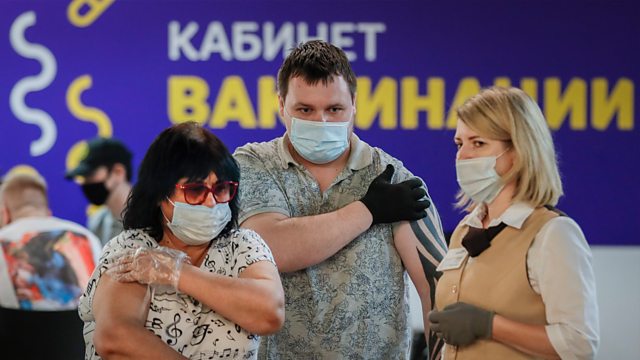Russia's Vaccine Paradoxes
The rollout of Sputnik V grows more urgent; China's moves to 'restore stability' in Hong Kong; under the heat dome in Canada; rural lockdown in south India; Chile fights the flab.
Attitudes to Covid in Russia have been very different to those in western Europe. Initially the government played down the risks and scoffed at βpandemic panicβ in the West. That changed as the virus swept across the country and its healthcare system creaked under the pressure β especially in regions far from Moscow. Russia makes its own vaccine, Sputnik V, which it has shared widely with other countries and is now promoting heavily at home. But as Sarah Rainsford explains, the drive to get people jabbed must contend with public cynicism, scepticism and fear.
Everything in Hong Kong these days points to tighter control from Beijing. The draconian national security law recently introduced in the territory is being applied to stifle protests, criminalise dissent and to get its previously lively press working within stricter limits. Chinaβs government calls this βrestoring stabilityβ. Danny Vincent has seen the process unfold. .
Western Canada is still reeling from a week of record temperatures on the Pacific coast. A freakish heatwave caused snowmelts, which in turn triggered flood warnings; tinder-dry forests burst into flame; and deaths spiked in cities simply not built for the heat. Neal Razzell lives on Vancouver Island and reports on life under the 'heat dome.'
The lockdown is working - that seems to be the message from India. Daily case numbers and death rates are now far lower than just a few months ago. As only a small proportion of the population has yet been fully vaccinated, the dip in new cases is being put down to strict lockdown measures imposed in states across the country. But isolation is far from easy to sustain β even if youβre in a rural area. Writer and poet Tishani Doshi has spent the time in a secluded spot in Tamil Nadu where even grocery shopping has become a complex process.
Governments everywhere have been warned about the global rise in obesity β and its likely costs to public health. But how far can they really change what individuals choose to eat? Chile introduced laws a few years ago to limit the advertising of junk food and to ensure healthy school meals. But three out of four adults and more than half of all children in the country are still overweight or obese. In Santiago, Jane Chambers has seen just how resistant some Chileans can be to well-meaning efforts to cut their calories.
Producer: Polly Hope
Last on
More episodes
Previous
Broadcast
- Sat 3 Jul 2021 11:30ΒιΆΉΤΌΕΔ Radio 4

